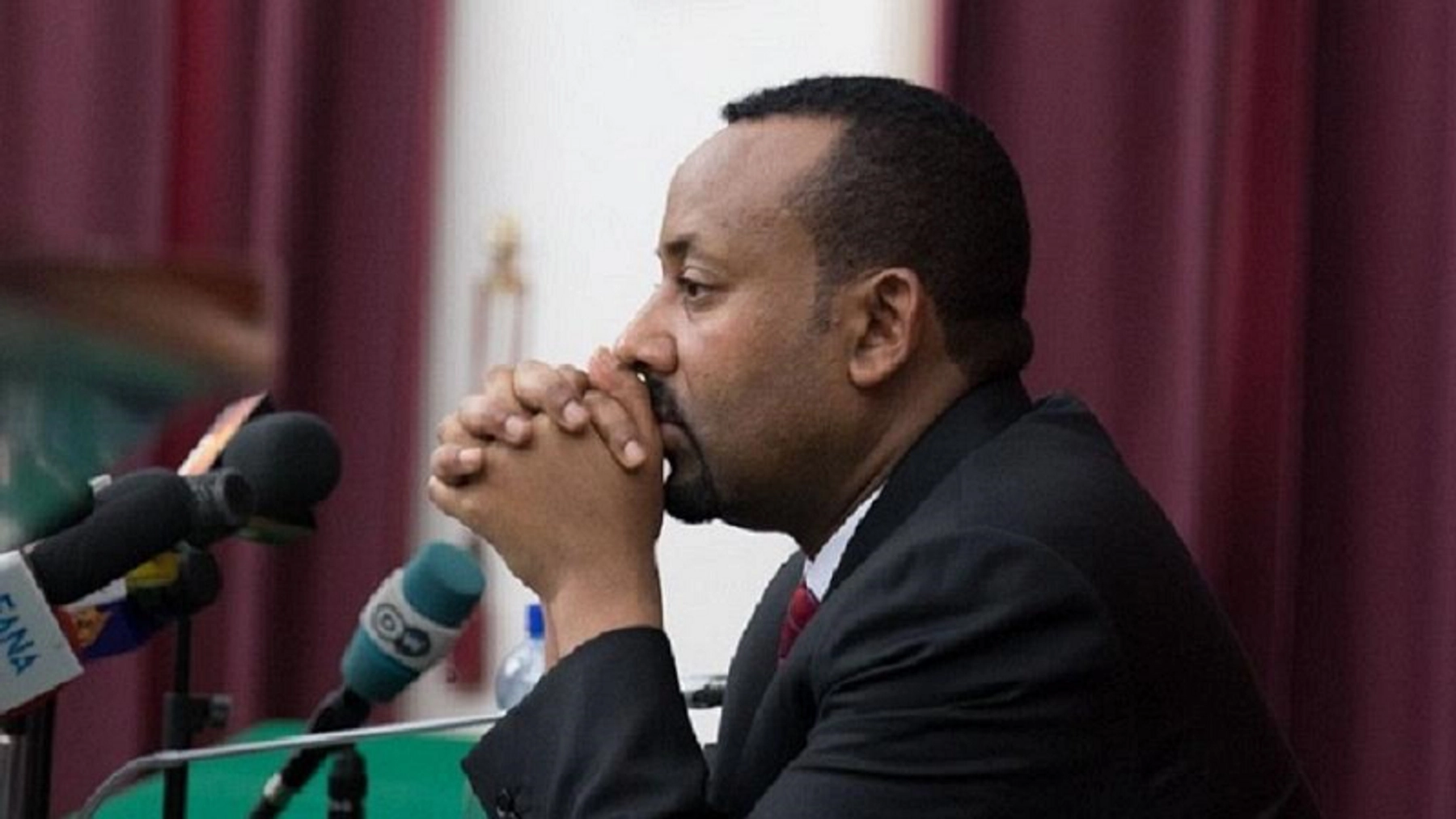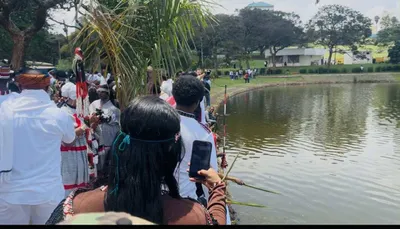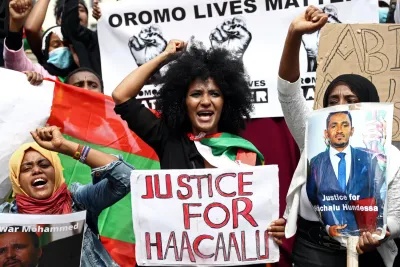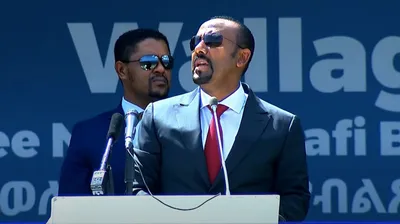How did Abiy Ahmed lose the Oromo street that propelled him to power?

A photo of Abiy Ahmed looking worried.
Prime Minister Abiy Ahmed came to power in April 2018, representing the now-defunct Oromo Peoples’ Democratic Organization (OPDO), a member of the four-party Ethiopian People’s Revolutionary Democratic Front (EPRDF) ruling coalition. He was willed into office by the years-long relentless protests and sacrifices of the Oromo youth. His elevation was possible only because OPDO embraced and aligned itself with the grassroots Oromo protests movement. Unsurprisingly, commentators emphasized the premier’s Oromo roots and the fact that he was the “first Oromo prime minister” in the EPRDF-era. Many Oromos hoped that he would address the perennial Oromo question and end the community’s economic and political marginalization.
Abiy’s meteoric rise from relative obscurity was celebrated at home and abroad. The whole country felt a sense of relief when he took office, especially the Oromo mothers who had been uncertain whether their sons who left home in the morning would come back alive.
His inaugural speech stunned all Ethiopians. It was filled with promises of unity, peace, and the coexistence of all ethnic groups. He spoke of inclusiveness, freedom from oppression, and the widening of the political space. He even apologized for the injustices perpetrated by the EPRDF regime that he was a part of for 27 years.
In rapid succession, Abiy normalized relations with Eritrea. He released thousands of political prisoners and removed the terrorism designation against the Oromo Liberation Front, the Ogaden National Liberation Front, and Ginbot 7. He invited all exiled Ethiopians to return and help build the country.
Too quickly, the Norwegian Nobel Committee awarded him the peace prize. Soon after receiving the award, Abiy began to write the darkest chapter of his legacy.
A few months before Abiy was appointed prime minister, the Oromo protests, which began in 2014 resisting plans to expand the boundaries of the capital Addis Ababa into Oromia, intensified. Thousands of Oromo youth lost their lives, and thousands more were thrown into prison. At one point, the military killed a young Oromo man and forced his mother to sit on her dead son’s body. The Oromo youth reached the point where they were no longer afraid of dying, offering their chests to the bullets. The protest movement spread across the country, reaching, among other places, the Amhara region.
Under pressure, the Tigray People’s Liberation Front (TPLF), which dominated Ethiopia since 1991, lost to Abiy’s OPDO in an internal power struggle. The Oromo had hoped that the demise of the TPLF would end their cultural, economic, and political exclusion. TPLF trampled upon the constitution, which enshrines the principle of local self-rule and federal shared rule, and continued the imperial legacy of exclusion and marginalization. Facing resistance, it killed, maimed, intimidated, and demoralized opponents, particularly in Oromia, to protect their hegemonic dominance over the country’s economy and politics. Many Oromos were forced into exile as refugees and asylum seekers.
To state the obvious, Abiy turned out to be a resounding disappointment. Despite a promising beginning, Abiy has adopted the same oppressive and heavy-handed style as his predecessors. He has begun a strict crackdown on criticism and adopted the strategy of widespread arrests.
Today, many of the Oromo youth who protested and were jailed to propel him into power are either dead, rearrested, or on the run. Abiy’s key challengers are in prison. Tens of thousands of Oromos are held in detention indefinitely with no charge or fair trial, often in unknown and unnamed locations, similar to what the TPLF did to the Oromos from 1991 to 2018. Critics and suspects are being shot dead across the Oromia region. His party is chipping away at the multinational federal arrangement.
Condescending attitude
Abiy’s condescending attitude toward Oromos has always been problematic. He has scolded Oromo artists for singing “grievance” songs. He lectures academics and activists to adopt his shallow and revisionist reading of Ethiopian history. He had opined that Oromumma is dwarfing the Oromo nation. His government has issued arrest warrants for Oromo scholars and activists based in Western countries for expressing their opinions in writing or media interviews. Meanwhile, his ardent non-Oromo critics, even inside Ethiopia, are untouched, and their speech seems protected.
The Oromo did not ask Abiy and his government for any preferential treatment. The Oromo demanded equal representation on political, economic, and cultural matters. They called for an Ethiopia that embraced all of its diverse peoples, not just a chosen few. Most importantly, they thought they would finally see the light of freedom. But their hopes have been dashed.
Abiy and his party did not address a single demand of the Oromo protests movement. It is doubtful that Abiy understands the demands that fueled those protests. In an interview with Oromia state TV last year, he was asked for updates on plans to make Afaan Oromo a federal working language. His response was comical. He referred to his writing in Qubee on social media and how non-Oromo regional and federal leaders say “akkam, or galatoomaa” during public events in Oromia. The implication was that the Afaan Oromo question is (being) addressed. The Oromia branch of the ruling party remains mute on the issue of Addis Ababa’s boundary and Oromia’s Special Interest over the city.
The Yellow Movement
To Abiy, the Oromos are a threat and so must be silenced. The regime’s practice of secret assassinations and imprisonments of Oromos is sowing the seeds for a future explosion. Today, the young generation of Oromo activists are well-equipped with strategies and technologies to defend their rights. They mobilize and connect quickly, across multiple continents, making it difficult for Abiy’s government and his cadres to keep up with them. A recent campaign, #OromoYellowMovement offers instructive lessons. It started as a solidarity gesture for jailed Oromo leaders who are undergoing sham political trials. Within days, social media platforms are awash with yellow. Its message is clear: In Abiy’s Ethiopia, we are all prisoners.
When Abiy orders his military to maim the Oromo youth in Oromia, the diaspora youth expose the regime’s crimes to the international community. His diplomats around the world are unable to defend him as they are overpowered by Oromo activists and scholars telling the stories of abuse to the world with clarity and evidence. The Abiy administration and its supporters are resorting to a propaganda war—using government funds, media, and powerful YouTube channels—to delegitimize Oromo grievances. This, too, won’t work. Oromos are making themselves heard utilizing a slew of television channels and social media platforms worldwide. The Oromo struggle for real and meaningful political changes in Ethiopia will continue.
In the famous words of John F. Kennedy, “Those who make peaceful revolution impossible will make violent revolution inevitable.” The assassinations and abuses in Oromia are already pushing many Oromo youths toward armed rebellion. Abiy and his allies have a choice to make: To correct the course and allow the Oromo and the rest of the Ethiopian people to determine their destiny or face the same ignominious end as the TPLF and their predecessors.
We need your support
We trust you found something of value in this article. If so, we kindly ask you to consider helping Curate Oromia continue its work.
If you believe in the importance of independent voices and honest reporting, we invite you to support our efforts through our GoFundMe campaign.
Every contribution, however small, goes directly to our writers and the expansion of our reach.
Thank you for your support.



